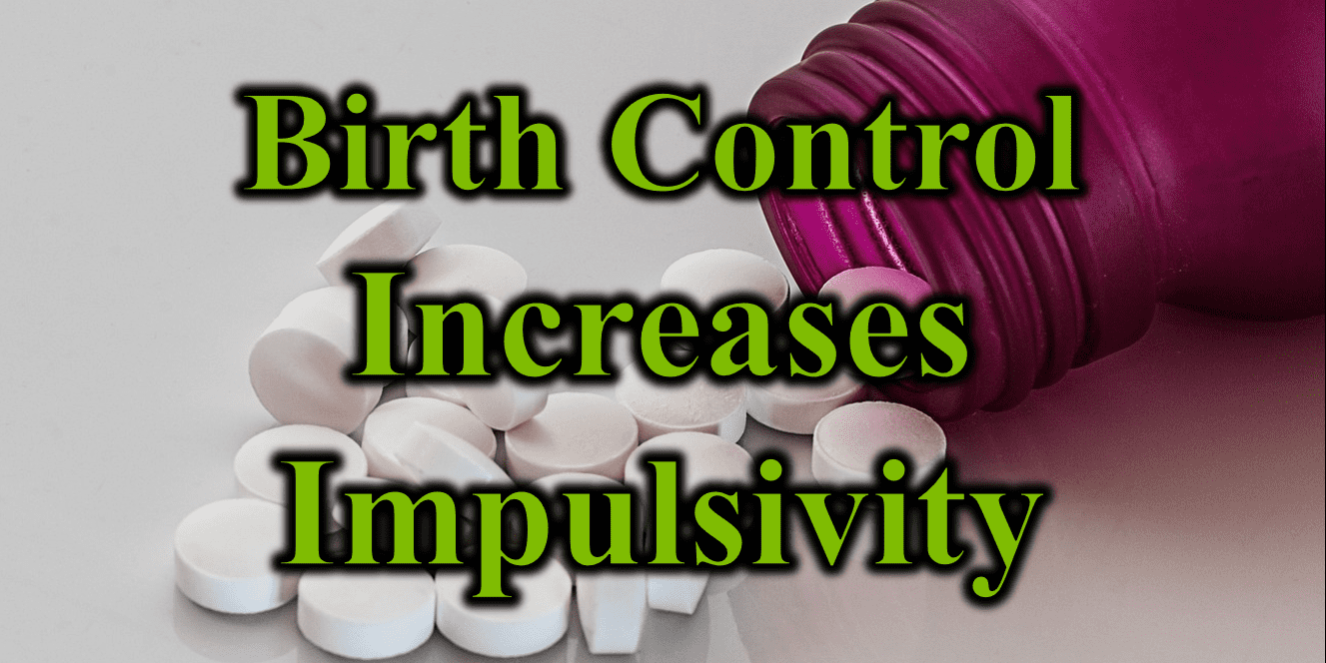The study of interest today seems pretty “Duh!” Just about every parent will attest to the effects of teenage hormones on their sweet little pre-teen. But there is something here much more critical to the future health of our children! This study looked at the effects of synthetic hormones known popularly as “birth control” or “the pill” on the impulsivity of teenage rats. Their findings strongly suggest that dosing hormones in teenage rats similarly to how we dose them in our children could affect brain maturation during these critical years. By the end of rat adolescence, the treated rats were more impulsive and took more risks than the untreated rats.
Years of science have uncovered a seemingly endless number of effects that reproductive hormones like testosterone, estrogen, and progesterone have on children’s developing brains. Meanwhile, throughout the past few decades, parents have watched as their children, especially girls, have entered puberty earlier and earlier. Something is impacting children’s hormones in the environment. Simultaneously, the sexual revolution’s extension into more teenagers becoming sexually active earlier and earlier has brought hormonal birth control into common practice for these teens. Besides the desire to avoid unwanted teenage pregnancies, these synthetic hormones are also being used to cover up girls’ polycystic ovarian syndrome and acne. With such a high frequency of young girls using this medication we need to know how it is affecting them in the long run.
Other studies have looked at various effects such as future fertility rates, future female cancer rates, and other conditions, but this gives us a look at the effects of such drugs on a developing brain. In their study they compared rats receiving hormones during their teenage years to genetically identical rats without extra hormones. At the end of rat adolescence, they compared the two groups in terms of various behavior tests and found significant differences. The rats who had received the synthetic hormones displayed more impulsivity and more risk taking. One example was that the hormone treated rats would remain in more open spaces, a life-threatening habit if they were in real world circumstances.
After the behavioral tests, the researchers sacrificed the rats and examined their brains under a microscope. The major change was that the axons of the nerve cells had thicker myelin sheaths around them. Myelin, a wrapping of fat, serves to support the transmission of nerve impulses along these axons which are the “wires” connecting one nerve to another. While the researchers did not draw a direct connection between the myelin and the behavior, they did measure levels of these synthetic hormones in the brains and found those drugs to be present. Each of these findings is a correlation rather than a proof of connections, but the experiment does strongly suggest that such drugs may have unexpected and undesirable effects on rat teenagers.
Whether or not this will be proven to occur in human teens is left to be seen. We cannot intentionally choose to compare a group of teen girls forced to take birth control against a group who are not allowed to take birth and then dissect their brains after behavior tests. No double blinded placebo-controlled study is ethical in this situation. Instead, someone will have to devise an observational study which does its best to compare those teens on the pill versus those who never took it. Some surrogate behavioral markers will have to be identified and measured around age 18 to 20 and attempt to determine if the two groups are different. As complicated as this sounds, it will be much harder to obtain clear data from such a study and even harder to get such findings into the medical journals or news media. Likely the hardest thing will be to change the practice of thousands of health care providers and the perceived benefits of millions of sexually active teens.
For those of us in functional medicine or even just concerned Christian providers, we want to take seriously the potential for harm of any therapy upon our patients. While early sexual activity has its own set of problems, if this study does reflect what is happening in our teen patients’ brains, we should be informing parents and their teens of this risk. Helping teenagers grow into healthier more abundant lives as adults requires awareness of such risks and education of everyone involved. Our patients deserve that. Our commitment to do no harm before God requires that. Giving risk-taking teens something that makes them more likely to take risks undermines all of that.
Focus study:
Caldwell, Emily. “Hormonal Contraceptives in Teens May Alter Risk Assessment.” Hormonal Contraceptives in Teens May Alter Risk Assessment, 12 Nov. 2023, news.osu.edu/hormonal-contraceptives-in-teens-may-alter-risk-assessment/. Accessed 15 Nov. 2023.
Thanks to Science Daily:
Ohio State University. “Hormonal contraceptives in teens may alter risk assessment, rat study suggests.” ScienceDaily. ScienceDaily, 13 November 2023. <www.sciencedaily.com/releases/2023/11/231113192129.htm>.
Sanctuary Functional Medicine, under the direction of Dr Eric Potter, IFMCP MD, provides functional medicine services to Nashville, Middle Tennessee and beyond. We frequently treat patients from Kentucky, Alabama, Mississippi, Georgia, Ohio, Indiana, and more... offering the hope of healthier more abundant lives to those with chronic illness.







